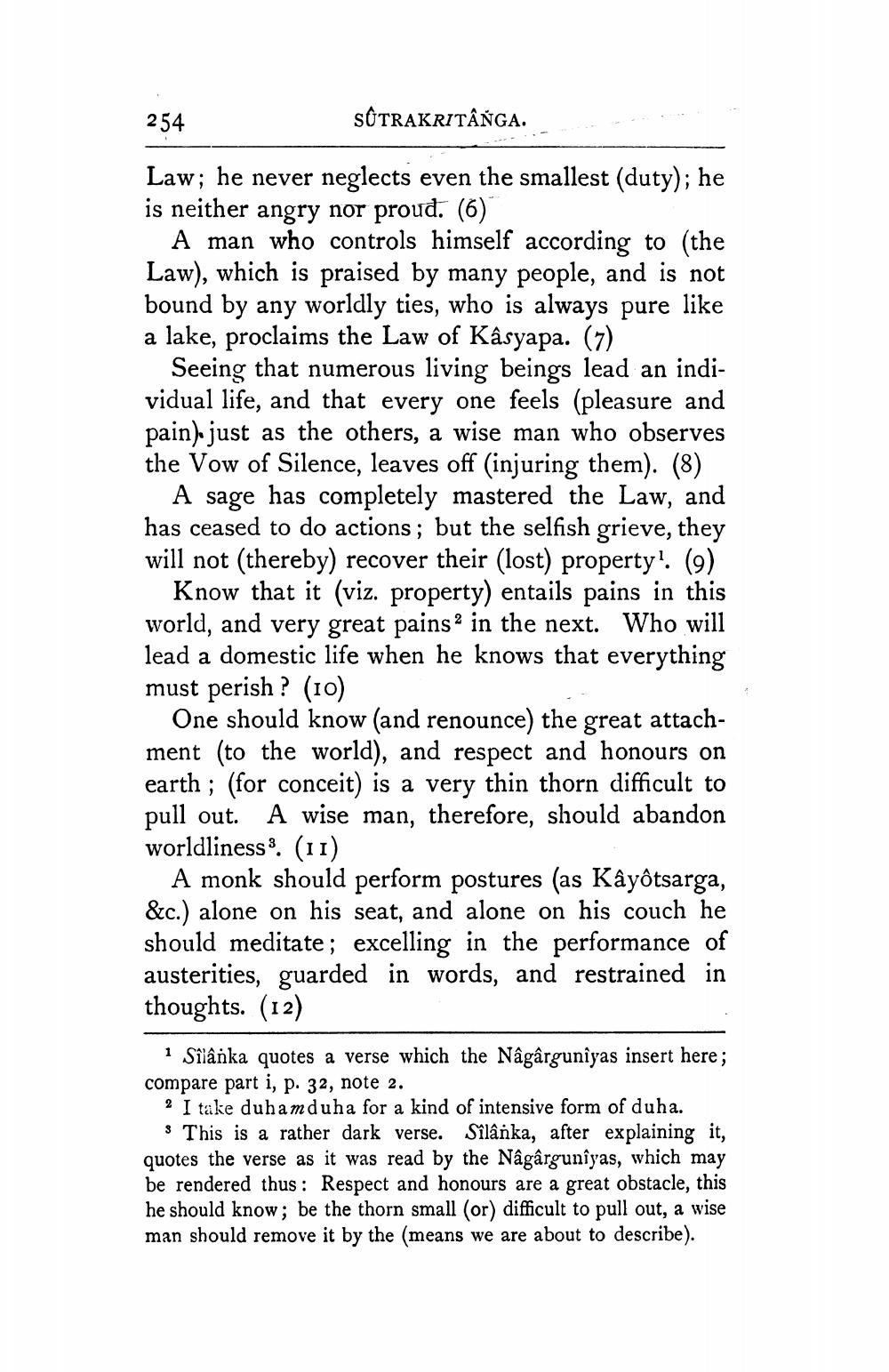________________
254
SÛTRAKRITÂNGA.
.
Law; he never neglects even the smallest (duty); he is neither angry nor proud. (6)
A man who controls himself according to the Law), which is praised by many people, and is not bound by any worldly ties, who is always pure like a lake, proclaims the Law of Kâsyapa. (7)
Seeing that numerous living beings lead an individual life, and that every one feels (pleasure and pain), just as the others, a wise man who observes the Vow of Silence, leaves off (injuring them). (8)
A sage has completely mastered the Law, and has ceased to do actions; but the selfish grieve, they will not (thereby) recover their (lost) property! (9)
Know that it (viz. property) entails pains in this world, and very great pains ? in the next. Who will lead a domestic life when he knows that everything must perish ? (10)
One should know (and renounce) the great attachment (to the world), and respect and honours on earth ; (for conceit) is a very thin thorn difficult to pull out. A wise man, therefore, should abandon worldliness 3. (11)
A monk should perform postures (as Kâyôtsarga, &c.) alone on his seat, and alone on his couch he should meditate; excelling in the performance of austerities, guarded in words, and restrained in thoughts. (12)
Sîlânka quotes a verse which the Nâgârgunîyas insert here; compare part i, p. 32, note 2.
2 I take duhamduha for a kind of intensive form of duha.
* This is a rather dark verse. Sîlânka, after explaining it, quotes the verse as it was read by the Nâgârgunîyas, which may be rendered thus: Respect and honours are a great obstacle, this he should know; be the thorn small (or) difficult to pull out, a wise man should remove it by the means we are about to describe).




